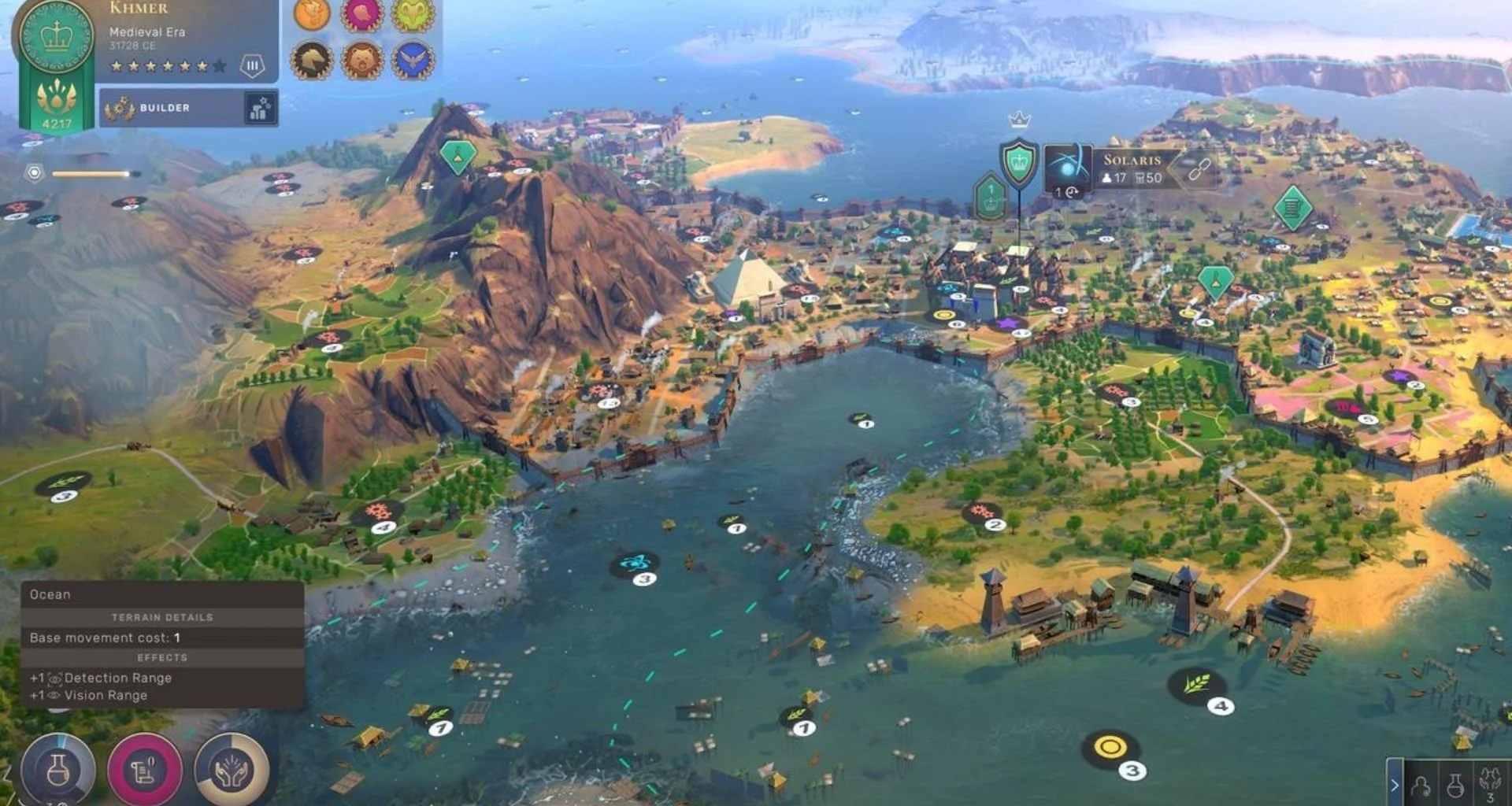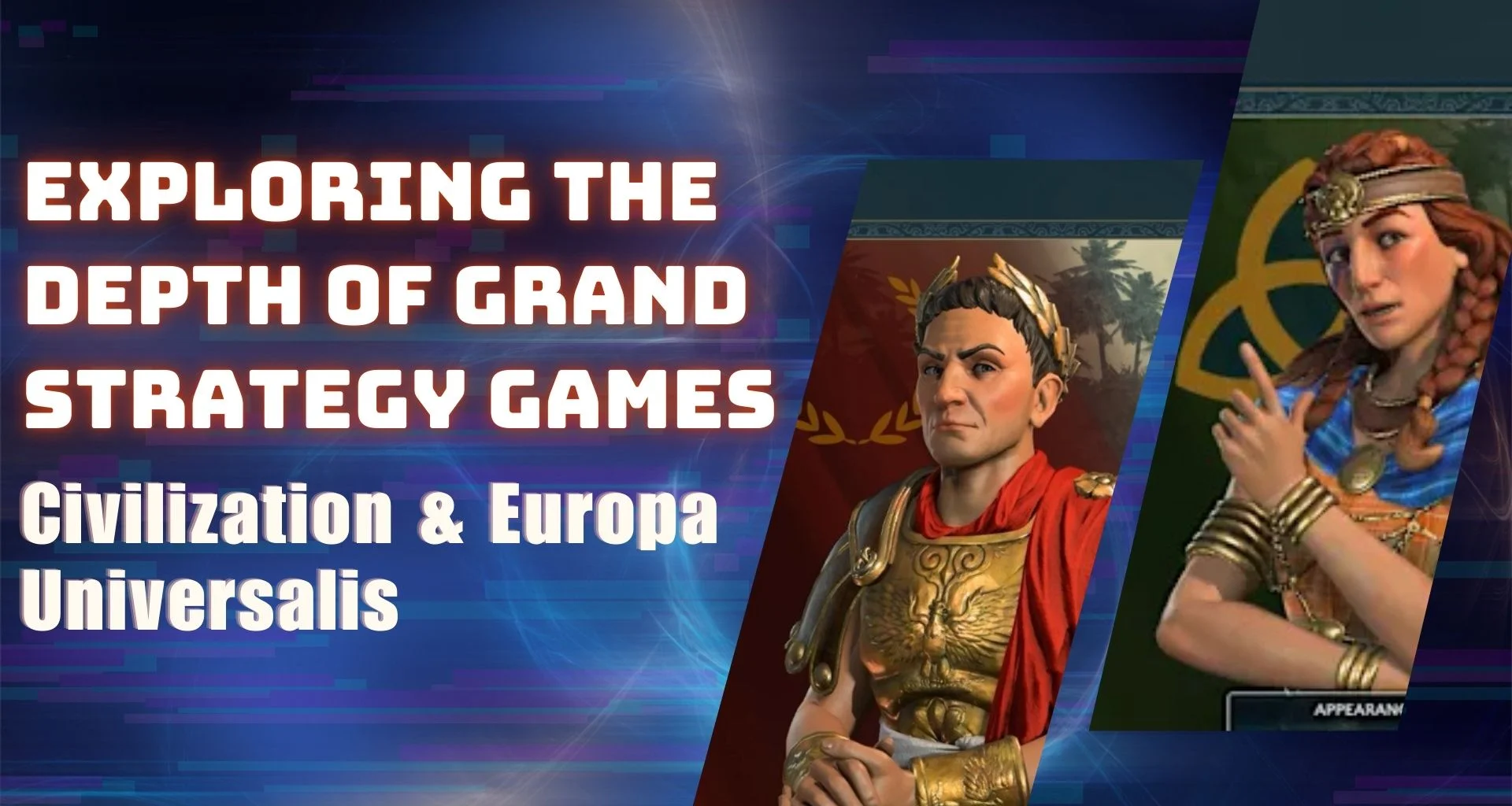If you’ve spent hours engrossed in building an ancient civilization or an empire, you probably have some clue on the world of grand strategy games. There are many genres of games that make hardcore gamers glued to their seats as they try to take over civilizations or build empires across continents, such as Civilization, or Europa Universalis, which are particularly not for the timid because they involve a lot of time, effort and planning. On the contrary, for people who happen to be game enthusiasts, who are not afraid of various hurdles, such games present a level of depth and intricacy that is, hands down, not found anywhere in the world of gaming.
What Makes Grand Strategy Games Such a Unique Form of Game Play?
Within the vast expanse of gaming, you may experience different types of games that suit different tastes. There are action-shooters for those who need a fast-paced plot, and there are also brain teasers for those who love puzzles. But then what of the colossal strategy-based games? These fall in a class all their own. They do not only engage you in how fast your reaction can be, or how fast you can come up with a solution for a challenge; they engage you in a long term action planning, in enduring hardship, and often, waiting out.
Games such as Civilization give you more than just the role of a king. If you are a leader, you are responsible for considering everything, from the latest technology developments and diplomatic strategies to the management of resources and military strategy.Continuing on, Europa Universalis lets you reign as a monarch for centuries and make decisions that can change the world. First and foremost, manage power, create coalitions and expand one’s sphere of influence in the appropriate order.
Such games cannot be simply opened and closed at one’s convenience. You will have to analyze every aspect of every action, adjust your strategy constantly and adapt to defeat in order to be victorious. If you are ready to accept this which seems easy but is complex, then let us explore the reasons why war strategy games are the most intriguing of all.
What Is the Attraction of these Games in Which One Fights at the Grand Strategy?
So what makes players play the grand strategy games, like Europa Universalis or Civilization? It is gratifying for many people to see their actions produces results after a certain period of time. Unlike the other games where your behavior produces output results immediately, which exaggerates the enjoys play and ‘actually’ living the experience, grand strategy games take some time to build up thus there is a lot of thinking out involved. It is therefore a competition that encompasses not only the making of strategy but the implementation of it in the near future.
For more complex grand strategy games, there is a lot more freedom to alter the risk levels associated with the game. You have control over your economy, your military, your culture, and your technological advancements, in regards to your nation or empire. You have complete authority over their development. Because of this amount of power, you are able to mold your environment in a variety of complicated and one-of-a-kind ways, which results in a fully unique experience for each and every playing.
The ability to choose:
In Civilization, you have the ability to select from a wide variety of historical characters, each of which have their own set of skills and advantages. Europa Universalis, on the other hand, permits you to exercise authority over real-world nations, each of which presents its own unique set of difficulties and opportunities. As you try with a variety of various techniques and approaches, these choices make it possible to have an unbelievable amount of replay value. Even if you played Civilization a hundred times, you would never have two games that were exactly the same.
Scope of the World:
Unlike war games, wherein a player may be confined to smaller territories or to certain combat situations, grand strategy games usually span over the whole world. It’s not only focusing on a single city or a kingdom, but a whole nation or civilization instead. You will also have to manage the competition and trade with other nations, explore different territories, and deal with various aspects of politics. For instance, in Europa Universalis, you could start off as a small state in Europe and extend your boundaries into other continents in the process accumulating more and more influence. This is a possibility that is granted to you. It is not simply a matter of burning all the enemies with one big battle. It is also about building something that will last.
In the process of destroying civilization, the most powerful empire-builder
There are a lot of players who get their first taste of grand strategy through the game Civilization. It is easy to understand while also being quite in-depth, and it gives you the opportunity to lead a civilization from the Stone Age to the Space Age. The more you advance through the eras, the more you will need to modify your tactics in order to meet the new problems that come your way. In the early phase of the game, you may focus on collecting resources and exploring. However, in due course, technology, diplomacy, and military power will have to be taken into account.

Image Name: Map for exploring the depth of grand Strategy
Theories of Civilization Growth of Technology:
The tech tree is one of the basic, if not the most, features available in the Civilization series. To avoid excessive investments in economy and culture while sacrificing military success, you will have to draw the line on what technological advancements to chase. Every move you make under this context will play into your strategy, and catching up with the rest after having fallen behind will be quite a painstaking exercise.
If they see that you are weak in Civilization, your opposing leaders will certainly resort to other means, such as diplomacy, to gain the upper hand over you. You will have to negotiate for trades, form coalitions, and at times, go to war. In this game, diplomacy is a complicated dance because different leaders react differently based on their personalities and the goals they have for themselves.
In contrast to the majority of games, Civilization does not only have a single path to victory with its conditions.Overcoming an opponent in a game can be achieved by deploying any of these resources: aerobic diplomacy, technical progress, cultural spread or physical domination. And while the fact that every type of win requires a different approach is a little overused, it also contributes to the overall freshness and difficulty of the game.
Mastering The Historical Strategy While Playing Europa Universalis
And if you coped with Civilization and are ready for a harder test, then Europa Universalis is just for you. You will command a country, and you will have to carry such country through its most hectic ages, throughout the historical scope, which is around the Renaissance period and Napoleonic times. The fact that Europa Universalis is so well-known for its historical authenticity and meticulous attention to detail makes it an absolute need for anyone who is interested in either history or strategy.
Time-Driven Mechanics:
One of the Most Important Aspects of Europa Universalis When playing Europa Universalis, time is of the utmost importance.Taking into account that your present-day actions will have repercussions for centuries to come, one will need to weigh every possible option thoughtfully and carefully. Whether you decide to build up more of your navy or choose to find new lands for your empire, the choices you make will alter the course of history dramatically.
International Trade and Economy:
In Europa Universalis, A player needs to pay attention to the domestic affairs of the country including the Economy, and in particular, trade. To do this, one has to complete certain procedures such as, setting up trade routes, controlling supplies and sometimes even invading foreign nations to gain resources. Europa Universalis at its core involves expanding one’s power and reaches out to all corners of the world, while in contrast to Civ it is more about managing the internal politics and economy of a single civilization.
Combat in Europa Universalis requires strategizing in advance if the players have to employ military tactics and warfare successfully. Your enemy’s strategies, the terrain, and the composition of your army are all important factors to take into consideration. For the sake of this game, warfare is not limited to simply sending troops into battle; rather, it involves the planning of campaigns, the formation of alliances, and even, on occasion, the manipulation of other nations into fighting on your side.
Why You Need to Engage In Strategic Games
If you are yet to experience the thrill of guiding a civilization through the ages or building an empire from the scratch, you should definitely try out some of the grand strategy games like Civilization and Europa Universalis. Such games are far superior compared to other forms of literature due to the depth and intricacy they provide. Every time you play the game, every play through, you set out on an adventure and every single decision you make shapes the environment.
In grand strategy games, you are free to enact your favorite scenario whether it is the creation of a peaceful utopia or the extermination of further opponents through conquering. It is not just a game but a history that you are portraying and building for yourself.
Closing Remarks
To summarize, grand strategy games take ages to complete. However, for those willing to accept the challenge, the game is full of benefits. For instance, Civilization and Europa Universalis are fun games a player plays without having to think until the player begins the game, planning and even making strategies until the end of the game. So if you are ready to take up the challenge, go ahead and see the kind of empire that you can build. You may just find out that you are really good at thinking big after all.

